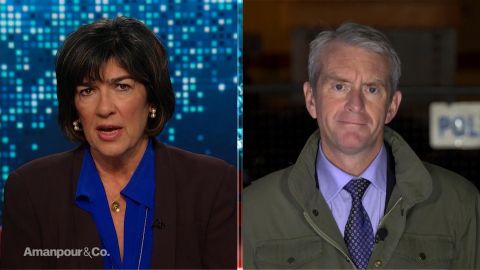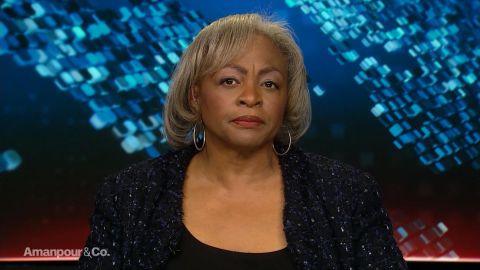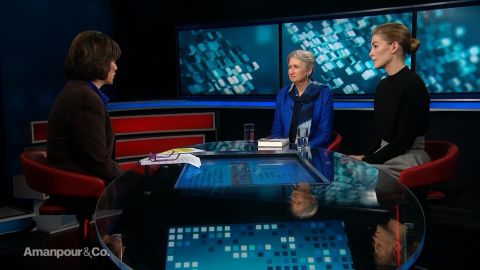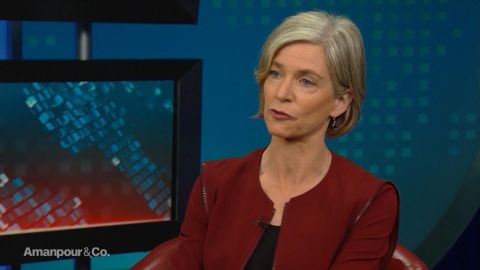Read Transcript EXPAND
CAROL ANDERSON: Voter suppression — and yes you did lay it out beautifully. It’s using the laws and the tactics to, in fact, target key population of voters and block their access to the booth, the voting booth.
CHRISTIANE AMANPOUR: And I guess there are many ways of doing it. So, I’m going to get into that in a second. But you have talked about, you know, the 21st century being littered with the bodies of Black votes. So, it obviously has a particular direction as far as you’ve said, and you are talking about Georgia because it is one of the most — you know, most in the spotlight. Tell me what you mean by that rather provocative sentence?
ANDERSON: And what I mean by that is that when you’re looking around from many of these voter suppression states and these are the states where you have generally a Republican governor and a Republican state legislator, they’ve crafted the laws particularly after Obama’s election and then after the Shelby County v. Holder Supreme Court decision in 2013 that gutted the Voting Rights Act, that what that has done is it has allowed them to craft the whole series of laws under the guys protecting the integrity of democracy, under the guys protecting the voting booth that, in fact, target African-Americans, they target the poor, they target Latinos. They particularly — and in that, and they target youth, student. And males are the groups that voted overwhelmingly for Democrat and voted overwhelmingly for Barak Obama. Those are the groups that are being targeted because those are the groups that don’t vote in mass for Republicans.
AMANPOUR: OK. So, let’s just take this step by step. First and foremost, last week, the associated press reported that some 53,000 people in Georgia, nearly 70 percent of them Black, according to the AP, have had their voter registrations placed in limbo because of some kind of mismatch, in this case, potentially with the driver’s license or Social Security information.
ANDERSON: Yes.
AMANPOUR: The state on the other hand has assured them that they will not be penalized, they will be allowed to vote. Tell me about that. Why will they not be allowed to vote if the state says they can?
ANDERSON: And so, what happens is, is that that begins to create a kind of confusion. It’s the same way that voter ID creates confusion. Will my ID work or won’t it work when I go to the voting booth? Will I be turned away? By creating a sense of confusion instead of certainty about your basic right to vote, it depresses the voter turnout. And so, people begin to hear that they’re on the pending list, that their voter registration didn’t go all the way through and that they’re going to have to bring some type of ID, but what kind of ID, to be able to vote. And will the poll workers be educated enough to know that although I’m on the pending list, that my ID will work.
About This Episode EXPAND
Christiane Amanpour speaks with CNN International Diplomatic Editor Nic Robertson about Saudi Arabia; Carol Anderson, author of “One Person, No Vote” about voting issues; and actress Rosamund Pike author Lindsey Hilsum about journalist Marie Colvin. Walter Isaacson speaks with biochemist Jennifer Doudna about gene editing technology.
LEARN MORE



